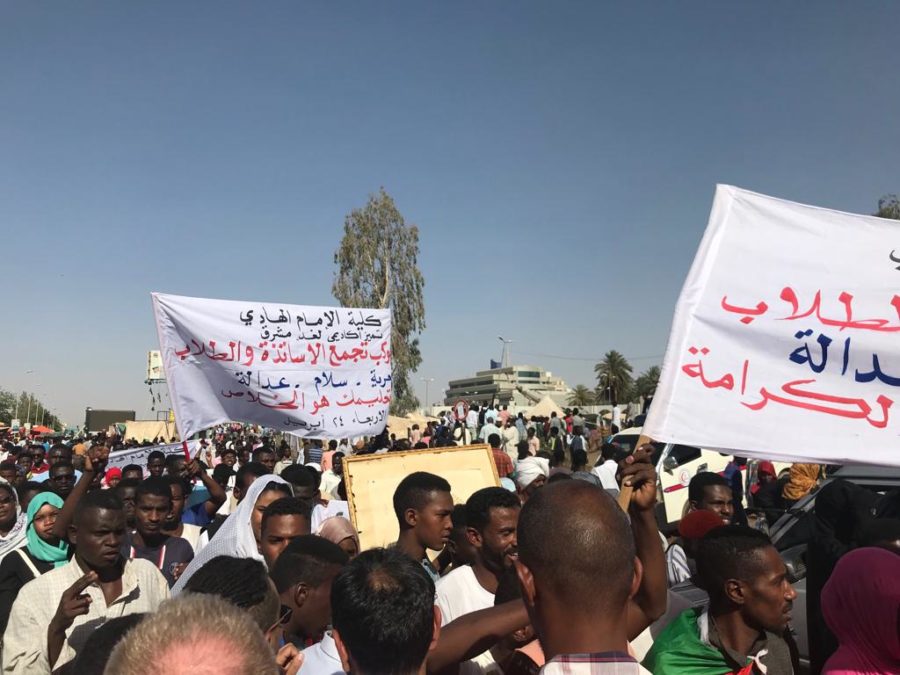I marked my one year anniversary as the British Ambassador to Sudan this week. When I started this job, I could not have imagined finding myself in the situation we are in now. Sudan had experienced 30 years of authoritarian rule. These were 30 years of conflict and secession, of repression and extremism, of sanctions and isolation, of corruption and mismanagement, of impoverishment and lost opportunity. After such a period of inertia and crushed hope, few observers expected the harvest of this era of oppression to be a revolution.
But despite their suffering, the pride, dignity, and determination of the Sudanese people remained intact. And this month, through sheer force of will and breathtaking courage they toppled the head of the regime that seemed for so long to be untouchable.
The movement that brought about this change began more than four months ago. But it reached a tipping point on 6 April when tens of thousands of people staged a mass sit-in outside the military headquarters in Khartoum asking for the army to intervene on their behalf to topple the regime. On 11 April they did just that. But two weeks on, the sit-in remains in force, with thousands still camped out pushing for a full transfer of power to civilian rule.
I visited the site of the protest for the first time last week. It is an awesome sight. The roads leading up to the site throng with people heading to and fro. As you approach the area, the thrum of activity is punctuated by the piercing percussion of the “youth of the bridge”. Young men incessantly and hypnotically drumming on the steel railing of the bridge to build a rhythm of urgency and intensity to the presence of the crowd.
The level of organisation that has developed at the site is hugely impressive.
Guards frisking those entering the area to ensure security; medical centres stocked with trauma kits, drugs and respirators to treat those in need; an artists’ quarter producing murals and graffiti to visually inspire those in attendance; pop-up kitchens and cafes to provide refreshment; tents for those who need a rest from the scorching sun, speaker’s corners to educate and inform, classrooms to teach the children present; exhibitions of the crimes of the former regime to remind us all why this uprising had to happen. It is a state within a state. And it is all manned by volunteers. A burst of civic initiative and collective endeavour to inspire the most cynical about the capacities that exist within Sudan to build, create and support, if unleashed and allowed to flourish.
But this is all at risk, as the political instability that currently hovers over this scene threatens to destroy all that has been achieved so far. The Military Council that removed the former President has yet to hand over power to a civilian authority. The Forces for Freedom and Change, the body that’s leading the talks for the transition for civilian rule, fears the military is trying to stymie the revolution and prevent real change.
We have been clear from the start that this opportunity for change needs to be seized. After such a long period of failed governance, Sudan has a chance to start afresh. To build a state that is inclusive, at peace, sharing power and wealth, protecting rights, promoting freedoms, responsive to the needs of the people. But to achieve this, it needs a break from the past. It needs a new social and political contract. One based on consent, legitimacy and the will of the people.
We have been working hard to engage with all actors to encourage a political agreement that allows for this. We have engaged the Military Council, the protest leaders, the political parties and civil society to push for inclusion, flexibility and compromise. What is at stake is too important to risk losing now.
The protestors remain at their sit in. Day and night. They are being bolstered by new arrivals from other parts of the country. Ramadan is almost upon us. But they are unfazed. They will fast at the site. Led by the women and youth who have been disenfranchised the most by the former regime. Their future held hostage by the failures of the former regime. They are determined to persevere and stay as long as it takes to complete their revolution. Their courage and commitment is an inspiration. It is an honour and a privilege to be a witness to it.

